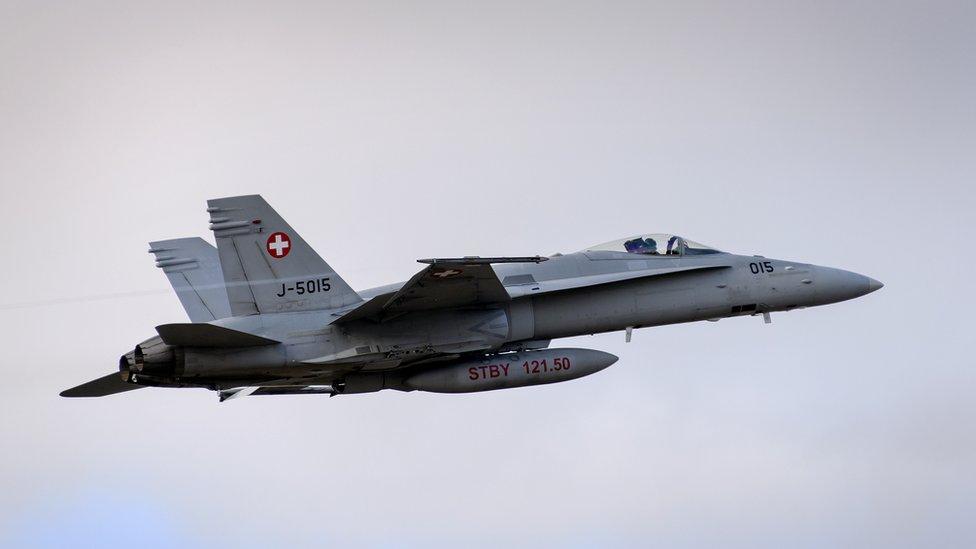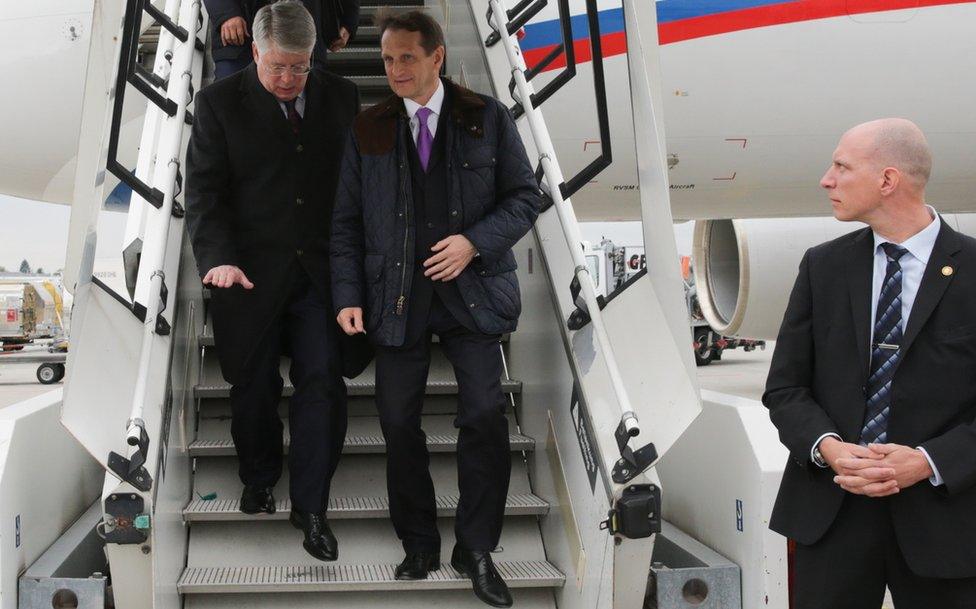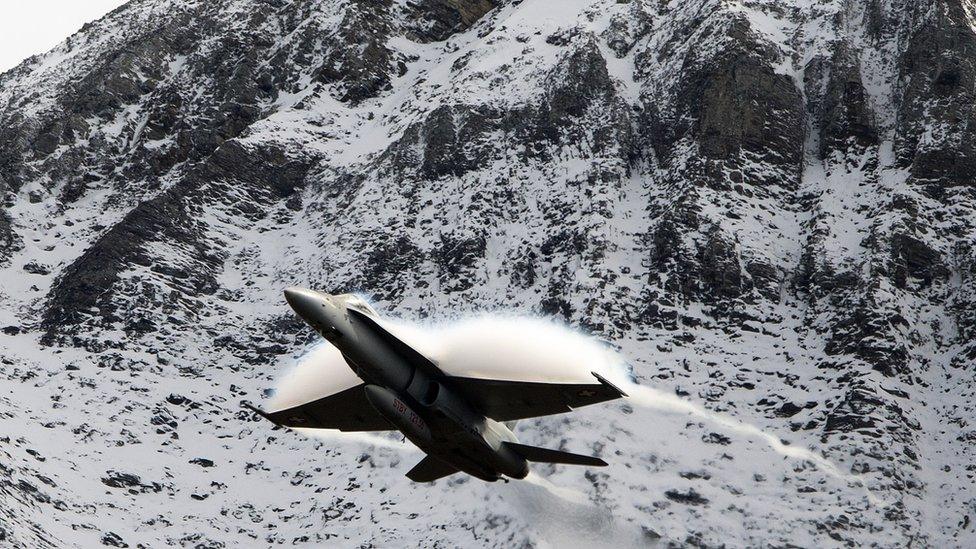France-Russia row over fighter jet 'near-miss'
- Published

A F-18 Hornet fighter jet: The Swiss have them, the French do not
What lies behind the frosty diplomatic exchange between Paris and Moscow over the buzzing of a Russian aircraft?
On Tuesday it was the turn of the Russian ambassador in Paris to be summoned for a formal dressing-down.
But basically that complaint was just to complain about the Russian complaint that came before.
On Monday it was the French ambassador in Moscow who got the ticking off - and France says that was an unwarranted breach of protocol.
'Psychological pressure'
It all began Monday morning when an aircraft carrying Sergey Naryshkin, an ally of Russian President Vladimir Putin, for a meeting in Geneva was buzzed by a military jet as it approached its destination.
Those on board said the plane was so close they could see the pilot.
The Russians jumped to the conclusion that the military aircraft was French and that the French were deliberately applying psychological pressure on Mr Naryshkin.

Mr Naryshkin (R), the speaker of the Russian parliament, arrived in Geneva on Monday
As chairman of the Russian State Duma, Mr Naryshkin is on the list of personalities banned from travelling to the EU as part of Brussels' sanctions over Ukraine.
France's ambassador Jean-Maurice Riepert was told that "this kind of dangerous action damages France's chances of being used as a place for future multilateral meetings and negotiations".
For Russian deputy Sergey Gavrolov, who was also on the plane, the episode "shows a lack of respect for international aviation norms and is an unfriendly act on the part of Nato".
Plenty of posturing
But the French said it was all baloney. It could not have been a French jet, they said, because the French air force does not possess F-18s, which this one was. It must have been Swiss.
And then the Swiss confirmed that it was indeed their jet.

The Swiss are allowed to fly over France to protect Geneva
Maybe the confusion occurred because the Swiss jet had been flying in French airspace. Under an agreement between the two countries, this is allowed so that the Swiss can protect Geneva.
But no - the Swiss say the incident took place over the town of Bienne, 100 km (62 miles) north-east of Geneva and well inside Switzerland.
On Tuesday the Russian ambassador presented his apologies to the French, and Moscow's ire is now focused on the Swiss - whose explanations about this being a routine verification are judged "not convincing" by the Russian foreign ministry.
Once again it is shades of the Cold War, as Russia and the West get jumpy over what might or might not have been deliberate attempts to poke their sensibilities.
Air space is the classic forum for playing out these resurgent tensions: top-grade military kit, plenty of posturing, limited risk of actual confrontation.
It is superpower theatre, played for effect, and long may it remain just that.